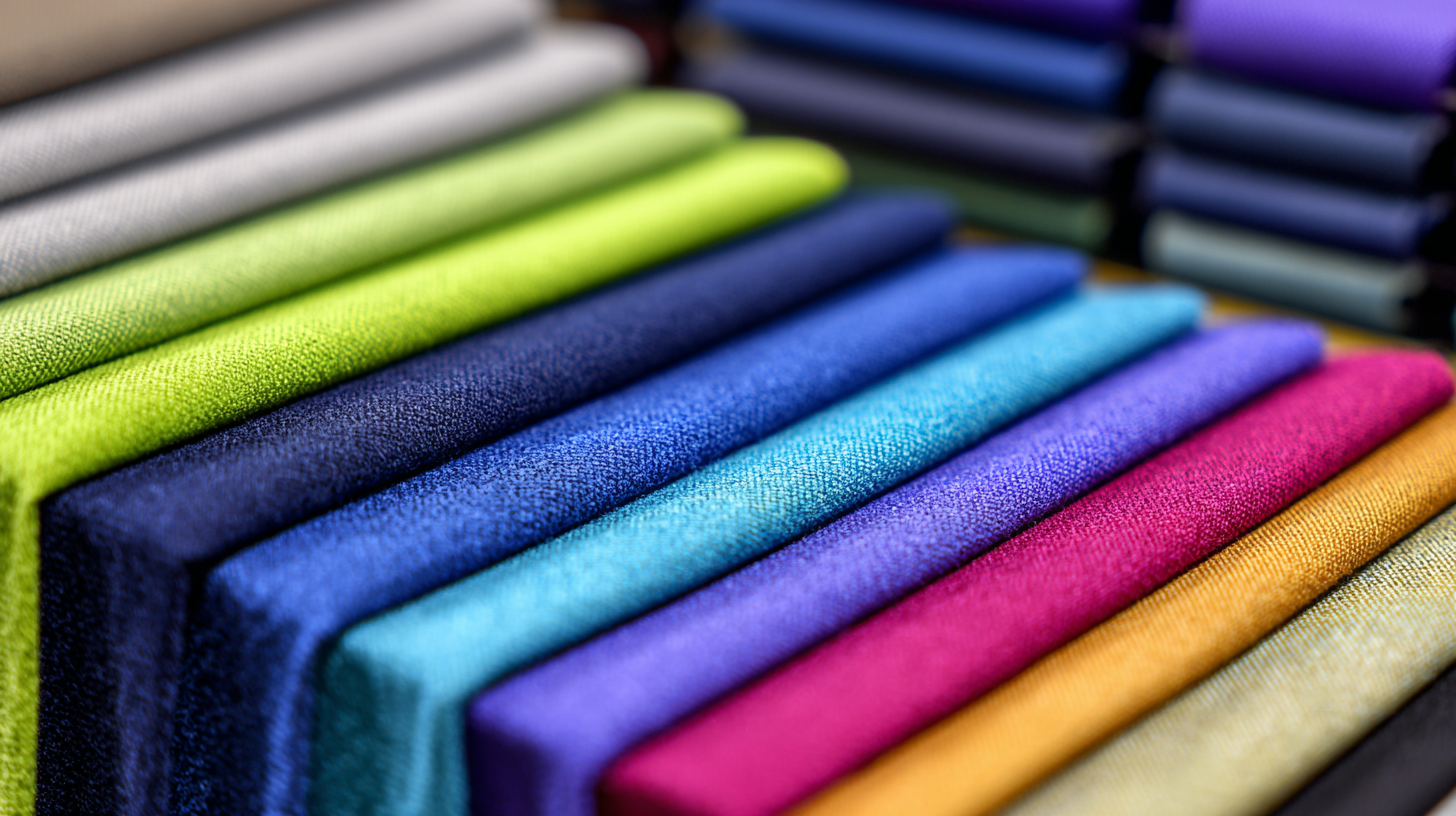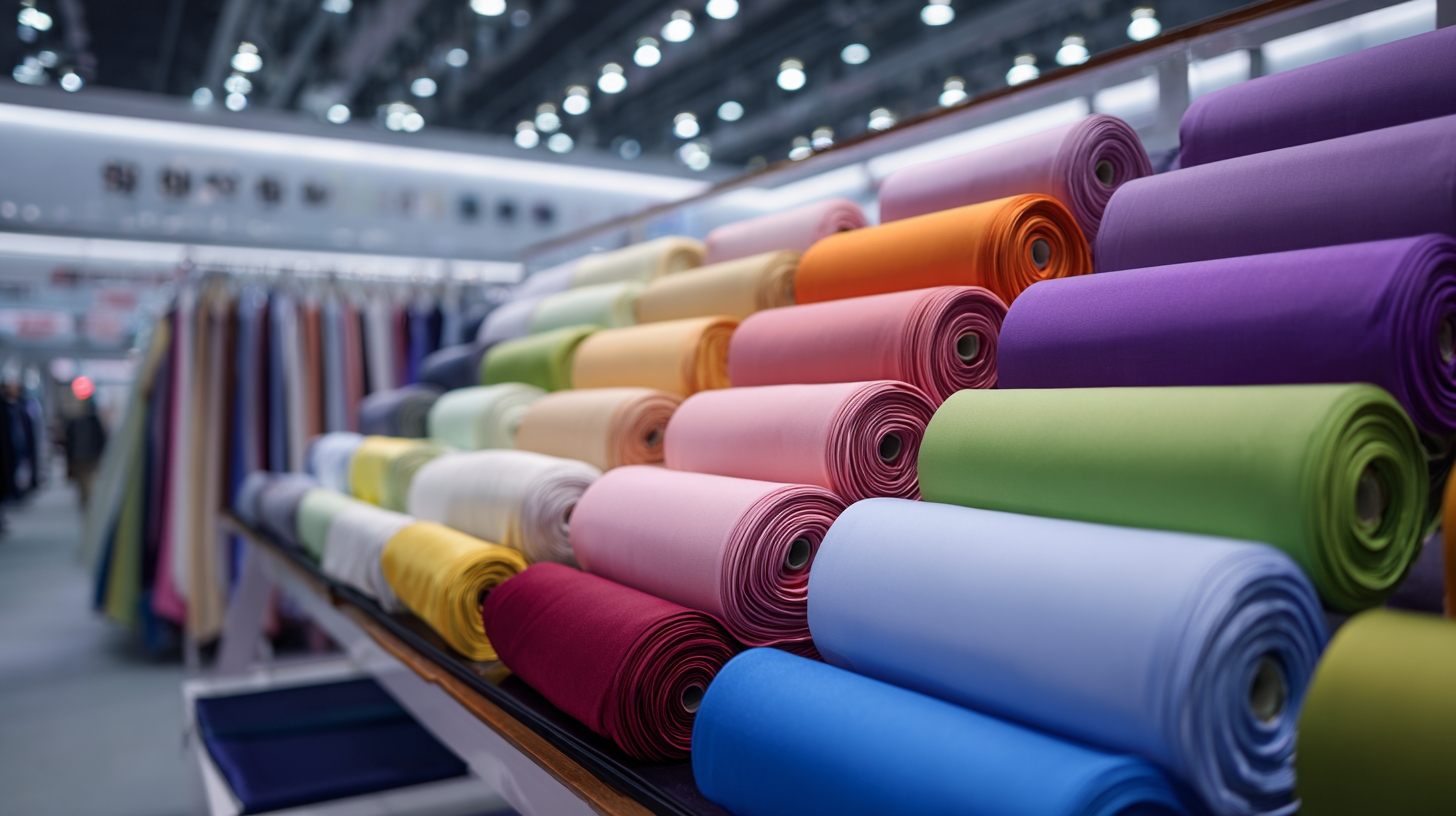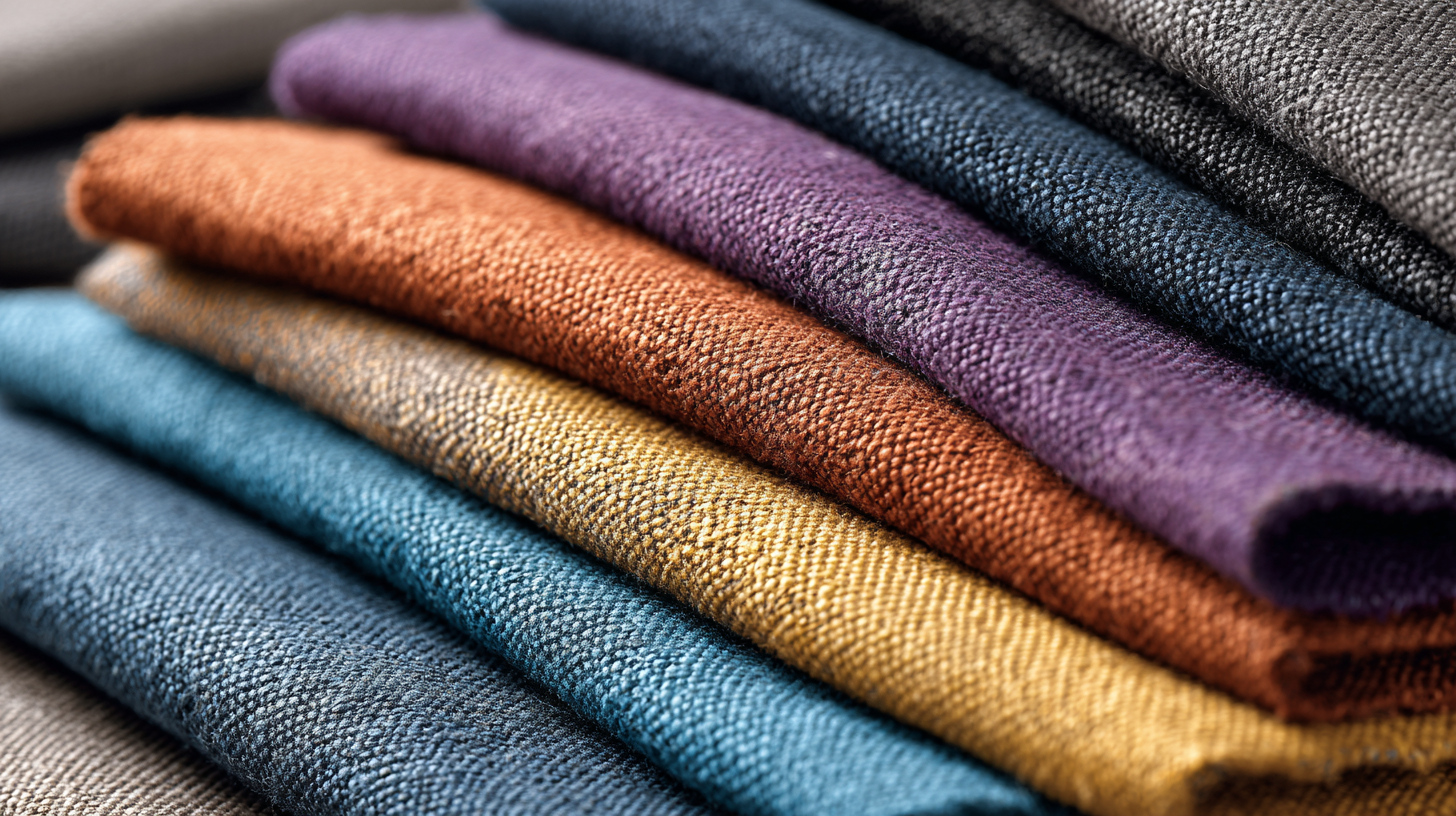As the textile industry continues to evolve, the demand for innovative materials such as Microfiber Stretch Fabric is on the rise. According to a recent report by the Global Textile Alliance, the microfiber segment is expected to grow at a compound annual growth rate (CAGR) of 8.3% through 2026, driven by advancements in technology and increasing consumer awareness of sustainable practices.

The upcoming 138th Canton Fair in 2025 presents a unique opportunity to explore the latest trends and applications of Microfiber Stretch Fabric, which is renowned for its superior durability, lightweight properties, and versatility across various sectors including fashion, sportswear, and home textiles. As industry leaders gather to showcase their innovations, understanding the evolving landscape of this dynamic fabric will be crucial for stakeholders looking to capitalize on emerging market opportunities.
The 138th Canton Fair in 2025 is set to shine a spotlight on the emerging trends in microfiber stretch fabric, reflecting significant advancements in the textile industry. One key trend is the increasing demand for sustainable materials. Manufacturers are now innovating through the use of recycled fibers and eco-friendly production processes, appealing to environmentally conscious consumers. This shift aligns with the broader global movement towards sustainability, making microfiber stretch fabric not only versatile but also a responsible choice.
Another notable trend is the technological integration in fabric design and production. Smart textiles that incorporate moisture-wicking, temperature control, and antimicrobial properties are gaining prominence. This technology enhances consumer comfort and performance, especially in activewear and athleisure markets. Furthermore, customization options are expanding, allowing brands to cater to specific consumer preferences in terms of texture, stretch, and visual aesthetics. As the Canton Fair showcases these innovations, attendees can expect to witness how microfiber stretch fabric is evolving to meet the dynamic demands of the modern market.
Microfiber stretch fabric is gaining attention for its exceptional durability and versatility, making it a focal point at the 138th Canton Fair in 2025. Recent studies indicate that high-quality microfiber blends can withstand over 50,000 rubs in abrasion tests, underscoring their resilience and suitability for a range of applications, from activewear to outdoor gear. With advancements in fabric technology, manufacturers are now able to produce fabrics that not only repel water but also maintain breathability, crucial for performance in varied weather conditions.

To maximize the benefits of microfiber stretch fabric, here are some tips: First, always check for the denier rating, which indicates the thickness of the fibers—a lower denier often results in lighter, yet strong, materials. Second, look for moisture-wicking properties in the fabric to keep you dry during extensive physical activities. Incorporating these features into your wardrobe can enhance comfort and performance, making it a worthy investment for both casual and serious adventurers.
As the fabric industry trends towards sustainability, the demand for eco-friendly microfiber options is on the rise. This push aligns with new consumer preferences highlighted in data reports, where more than 60% of shoppers are willing to pay a premium for sustainable items. Therefore, brands that adopt these eco-conscious practices while leveraging the proven performance of microfiber stretch fabrics are likely to thrive in the competitive market landscape.
As we approach the 138th Canton Fair in 2025, the demand for microfiber stretch fabrics is anticipated to witness significant growth. This projection is primarily driven by the increasing applications of these materials across various industries, including fashion, sportswear, and home textiles. The unique properties of microfiber stretch fabrics, such as their lightweight nature, breathability, and flexibility, make them highly desirable for consumers seeking comfort and performance.

Market analysts predict that the global appetite for microfiber stretch fabrics will surge as producers innovate and adapt to consumer preferences. With sustainability becoming a focal point in the textile industry, manufacturers are exploring eco-friendly sourcing and production processes, which could further enhance market appeal. Moreover, the rise of athleisure wear and the growing trend of personal wellness are expected to propel demand, as more consumers prioritize functional yet stylish clothing options. As we look forward to the Canton Fair, industry stakeholders will be keen to unveil the latest innovations and trends that are set to shape the future of microfiber stretch fabrics.
As the 138th Canton Fair approaches in 2025, the spotlight is on the emerging trends in microfiber stretch fabric, particularly in the realm of sustainability. With the textile industry responsible for approximately 10% of global carbon emissions, there is an increasing urgency to adopt eco-friendly practices. Recent reports indicate that the demand for sustainable microfiber products has surged, with a projected compound annual growth rate (CAGR) of 8.4% through 2028. Innovations in production techniques are paving the way for more eco-conscious options that do not compromise on quality or durability.
To meet this growing demand, manufacturers are exploring the use of recycled materials and waterless dyeing processes, which significantly reduce environmental impact. Companies like Repreve are leading the charge, converting plastic bottles into premium microfiber fabrics that meet both performance and sustainability standards. Attendees at the Canton Fair can expect to see a variety of such advancements, showcasing how the industry is transforming toward a more sustainable future.
Tip: When considering microfiber products, look for certifications such as Global Recycled Standard (GRS) to ensure you're making an environmentally responsible choice. Additionally, be mindful of suppliers who prioritize transparency in their sourcing and manufacturing processes. Embracing sustainable options not only benefits the environment but can also enhance brand loyalty among increasingly eco-conscious consumers.
At the 138th Canton Fair 2025, the microfiber stretch fabric industry showcases a dynamic competitive landscape where key players are vying for dominance. Companies are increasingly focusing on innovative blends and advanced production techniques to cater to the growing demand for high-performance materials. Market leaders are emphasizing sustainability, employing eco-friendly processes and materials to attract environmentally-conscious consumers. Strategic collaborations and partnerships are prevalent, enabling companies to expand their reach and enhance product offerings.
Tips for businesses looking to thrive in this competitive market include keeping an eye on emerging trends such as athleisure and bespoke fashion, which can drive demand for unique microfiber applications. Engaging in regular market analysis can provide valuable insights into consumer preferences and competitor strategies. Additionally, investing in R&D to create versatile and enhanced microfiber attributes, such as moisture-wicking or anti-microbial properties, will position companies to meet the evolving needs of consumers effectively.
As the Canton Fair continues to be a hub for industry networking, businesses should leverage these platforms to explore new collaborations and innovations. Establishing a robust online presence and utilizing digital marketing strategies can further enhance brand visibility, allowing key players to stand out in an increasingly crowded market.
| Category | Market Share (%) | Growth Rate (CAGR) | Key Trends | Sustainability Efforts |
|---|---|---|---|---|
| Activewear | 30% | 8% | Increased demand for functionality | Recycled materials usage |
| Home Textiles | 25% | 5% | Softness and durability | Natural dyeing processes |
| Sports Equipment | 20% | 7% | Enhanced performance features | Eco-friendly manufacturing |
| Industrial Applications | 15% | 6% | Increased use of microfiber for safety | Zero-waste initiatives |
| Automotive Textiles | 10% | 4% | Focus on comfort and aesthetics | Reduction of harmful chemicals |






